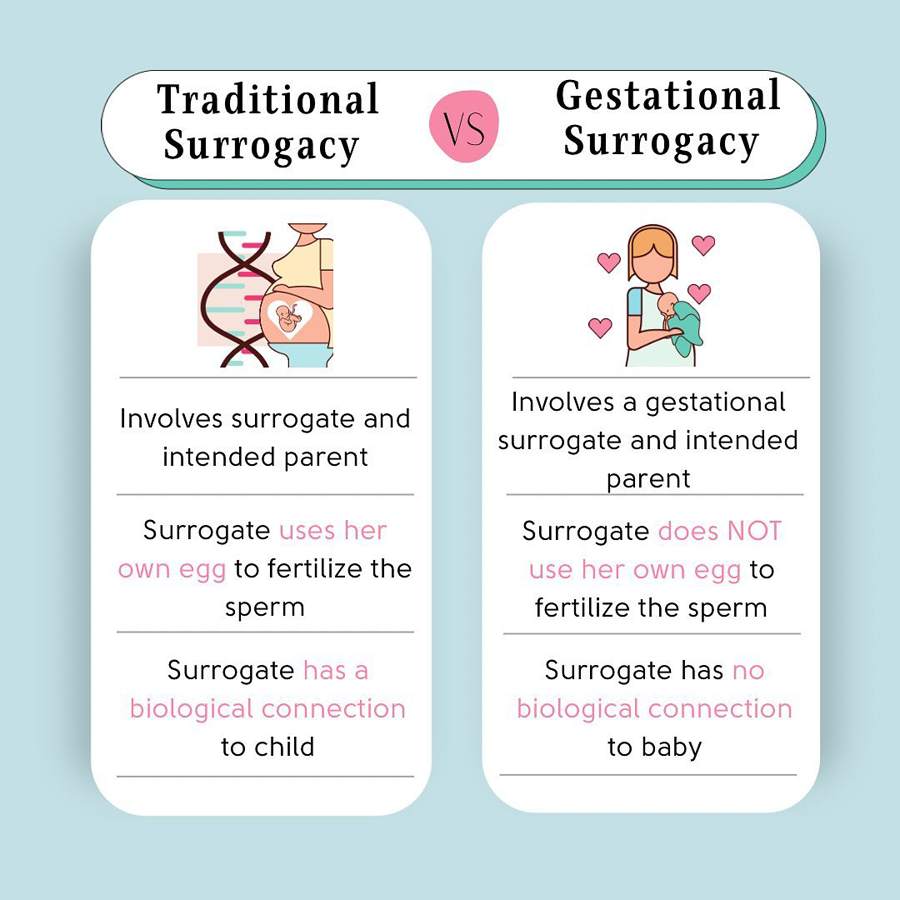Is Surrogacy Right for You? A Guide to Understanding Your Options in 2025
Surrogacy has become an increasingly popular path to parenthood for individuals and couples facing infertility, medical issues, or other challenges that make traditional conception difficult. So, about your options in 2025, the surrogacy landscape is more accessible and regulated than ever before, making it a viable option for many hopeful parents.
But is surrogacy right for you? This comprehensive guide explores the types of surrogacy, the latest trends, key questions to ask yourself, and how Become Parents can help you every step of the way. With the emotional, financial, and legal factors involved, choosing surrogacy is a deeply personal decision that should be made with clarity and confidence.
Understanding the Types of Surrogacy
There are two primary types of surrogacy:
-
Gestational Surrogacy: The most common type in 2025, gestational surrogacy involves the implantation of an embryo created via IVF using the egg and sperm of the intended parents or donors. The surrogate, in this case, has no genetic relationship to the baby. This is preferred because it separates biological connection from the surrogate’s role, simplifying legal rights and emotional boundaries.
-
Traditional Surrogacy: Less common today due to legal and emotional complexities, traditional surrogacy uses the surrogate’s own egg, making her the biological mother of the child. Although it is less favored today, some cases still utilize traditional surrogacy, particularly where gestational options are limited.
Most agencies and intended parents opt for gestational surrogacy due to its legal clarity and reduced emotional complications.
Why Choose Surrogacy?
Surrogacy is an empowering choice for many individuals and couples. You may consider it if:
-
You’ve experienced recurrent pregnancy loss or failed IVF cycles.
-
You have a medical condition that makes pregnancy unsafe.
-
You are part of an LGBTQ+ couple looking to start a family.
-
You’re a single parent who dreams of having a biological child.
-
You have a genetic disorder that you do not wish to pass on through natural conception.
Surrogacy enables intended parents to maintain a biological link with their child while receiving support from a third party who carries the pregnancy.
2025 Surrogacy Trends
Several trends have shaped the surrogacy landscape this year:
-
Global Legalization: More countries are opening their doors to ethical, compensated surrogacy. Governments are increasingly recognizing the rights of both intended parents and surrogates.
-
LGBTQ+ Family Building: Agencies are now more inclusive and better equipped to support diverse family structures. Legal frameworks are evolving to protect same-sex parents more effectively.
-
Increased Transparency: There’s greater emphasis on legal contracts, surrogate screening, and mental health support.
-
Improved Success Rates: With advancements in IVF and embryo freezing technologies, the success rates for pregnancies through surrogacy have reached all-time highs.
Is Surrogacy the Right Path for You?
Ask yourself the following:
-
Are you emotionally prepared for the journey? Surrogacy involves trust, patience, and collaboration with a surrogate. You will need to build a bond with your surrogate and trust medical professionals throughout the process.
-
Are you financially ready? Costs vary depending on location, legal fees, medical expenses, and surrogate compensation. You should be prepared for both expected and unforeseen expenses.
-
Do you understand the legal aspects? Surrogacy laws differ across countries and states. A qualified agency can guide you through jurisdictional differences and ensure your parental rights are recognized.
Emotional and Psychological Aspects
Many intended parents underestimate the emotional aspects of surrogacy. It’s important to consider:
-
How will you manage the emotional ups and downs?
-
Are you ready to rely on another person to carry your child?
-
How will you handle the relationship with your surrogate during and after the pregnancy?
Counseling is often recommended for intended parents to prepare mentally and emotionally for the surrogacy journey.
How Become Parents Can Help
At Become Parents, we provide comprehensive support for intended parents worldwide. Here’s how we guide you:
-
Surrogate Matching: We connect you with thoroughly screened, compassionate surrogates. Every surrogate is evaluated medically, psychologically, and legally to ensure she’s ready to support your family-building journey.
-
Legal Coordination: We ensure all legal contracts and rights are protected in both local and international surrogacy programs. Our legal partners work across jurisdictions to provide peace of mind.
-
Medical Support: We work with top IVF clinics to give you the best chance of success. You’ll receive guidance at every stage of embryo creation, transfer, and prenatal care.
-
Emotional Guidance: From start to finish, we provide counseling and support to both intended parents and surrogates. Building a family through surrogacy can be emotional, and we’re here to help you navigate it.
Our Global Presence
Become Parents offers surrogacy programs in surrogacy-friendly countries such as Georgia, Mexico, and Colombia. Our local partners handle all in-country logistics, making the process seamless and worry-free. Each country offers unique advantages:
-
Georgia: Legally secure and cost-effective for married heterosexual couples.
-
Mexico: Inclusive policies for same-sex couples and single parents.
-
Colombia: Flexible legal recognition for diverse family types with experienced IVF clinics.
A couple from Australia struggled with infertility for over a decade. After contacting Become Parents, they were matched with a surrogate in Georgia. Nine months later, they welcomed their baby boy. “Become Parents made the process simple, transparent, and full of hope,” says IP. Their surrogate, Mariam, expressed her joy in helping another couple become a family, highlighting the mutual respect and care nurtured throughout the journey.
Frequently Asked Questions
Q: How long does the surrogacy process take?
A: On average, the journey from consultation to baby’s birth takes 12–18 months, depending on legal and medical factors.
Q: Can I choose the surrogate?
A: Yes. You will have the opportunity to review surrogate profiles and make an informed choice.
Q: Will I be involved in the pregnancy?
A: Most surrogates and intended parents maintain regular communication, and many intended parents attend medical appointments virtually or in person.
Final Thoughts
Surrogacy can be a transformative experience. With the right guidance and support, your dream of parenthood is within reach. As many options in 2025 bring more clarity, access, and inclusivity to the surrogacy process, there’s never been a better time to explore this path. Ready to start your journey? Contact Become Parents today and take the first step toward building your family.




